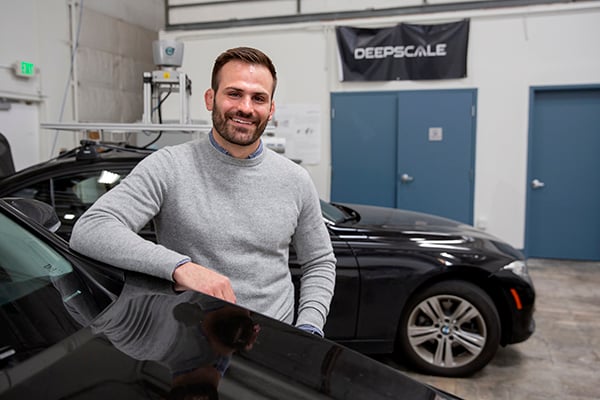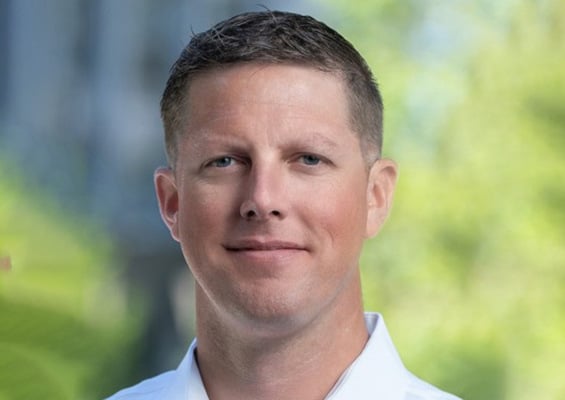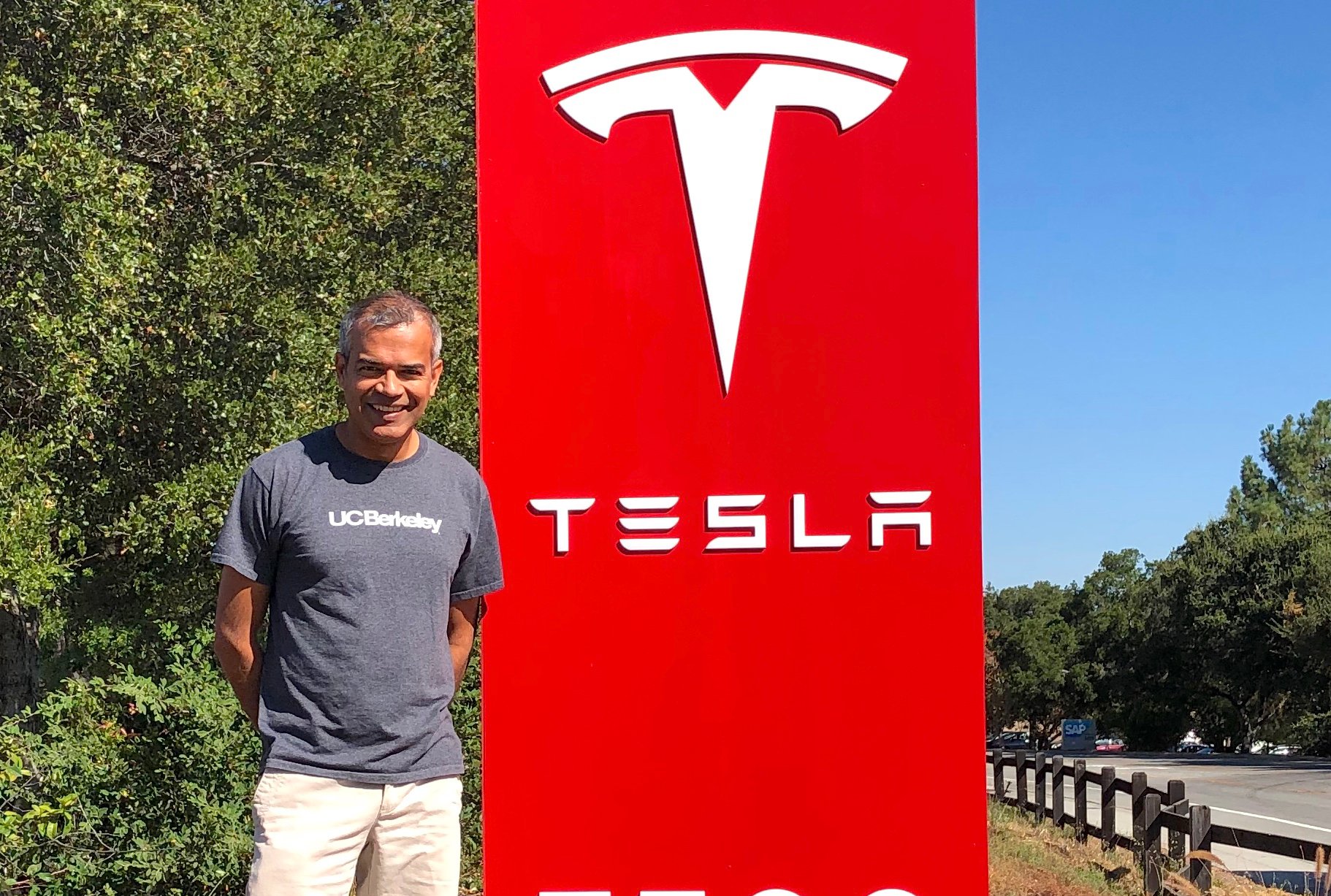How did a guy who launched his career trading derivatives during the great recession, then dove into hydraulic fracking, end up on the cutting edge of cleantech immersed in neural networks and deep learning?
It started, explains Kyle Bertin, MBA 18, about the time he began thinking in terms of a 100-year time horizon back in 2015.
Kyle was working at U.S. Silica which mines high-quality silica sand used in paints, coatings, and industrial and architectural glass. The oil industry uses it in fracking to help keep shale formations open. Unfortunately oil prices, which topped out at more than $150 a barrel for West Texas Intermediate in 2008, had plunged to $40 a barrel by December 2015.
“The business leaders I most respect in the world, like Jeff Bezos of Amazon, take a 100-year time horizon,” says Kyle. “So I thought: if you take a 100-year horizon, is the oil business the one you want to be in?”
The answer was clearly no. Cleantech, however, did fit that time horizon.
Kyle already knew a lot about finance. Besides his economics degree from Northwestern, he’d traded energy derivatives, equity derivatives, interest rate swaps, and other exotics during the financial crisis.
“When people are scared, you can make money from the panic, volatility, and mispricing,” he says. “But”, he adds, “I wanted something more interesting than arbitrage or oil.”
To jump into the future, Kyle realized he needed an MBA. It was a risk because he was rapidly climbing the corporate ladder at U.S. Silica. “But," as he says, “only people who take big risks do great things.”
Kyle didn’t decide on a Berkeley MBA until he visited campus.
“I saw how deeply ingrained Berkeley was in tech and energy and how it was close to the heart of the whole Silicon Valley ecosystem,” he says. “But the biggest turning point was during the interviews. Everyone—the students, the professors, the quality—just blew me away. They were nice, talented, good people. I thought, these are the people I want to be around.”
“At first”, Kyle admits, “the four Defining Leadership Principles seemed like a cute marketing gimmick, but when I met the students I thought, yeah, you nailed that.”
Kyle ticks off a number of courses that shaped his future like Energy and Environmental Markets taught by Severin Borenstein. But, he thinks the most impactful was Rob Chandra’s Entrepreneurship course, which he says, “peeled the veneer away from what a startup is like, discussing the hard decisions and the uncertainty. From that class I have my notebook of things I know I don’t want to forget.”

Especially influential was Cleantech to Market, an experiential course that starts with a nationwide call for cleantech proposals. Students are then handpicked to try to commercialize the idea. Kyle was paired with another MBA student, two PhD candidates in physics, and a student getting a masters degree in transportation systems. The goal was to find ways to make electric vehicle charging more efficient and scalable in 15 weeks.
“It was a ton of work; the hardest thing I’ve done,” says Kyle, who notes there was no easy fix. In fact, EV charging is one of the thorniest problems in cleantech. “The U.S. energy grid wasn’t designed for the massive loads needed for EVs at scale and charging stations are still relatively scarce.”
Since graduating, Kyle has formed the Berkeley Haas Transportation and Mobility Group. Now with 100 members, its goal is to “educate and inspire” people about how to improve the transportation system. “My goal is to help Berkeley become the preeminent institution for developing future leaders in mobility and transportation,” he says.
Now at a Mountain View start-up called DeepScale, Kyle says he’s trying to solve another transportation conundrum: “How to help cars not hit things.”
It involves creating an artificial intelligence system, a deep neural network that accurately identifies objects and people and makes extremely fast decisions that govern the vehicle.
“At our core we are an AI company,” says Kyle. “We use deep learning which is a form of machine learning that has led to huge improvements in things like computer vision and natural language processing. The problem is that it’s extremely computationally intensive and has traditionally been very difficult to implement in vehicles.”
For Kyle it’s part of being along that 100-year timeline.
“We are helping create robust software for a safety-critical device that functions reliably,” he says. “If you think of the potential benefit to humanity at large, the net present value of that is hugely valuable. It’s not necessarily a quick cash thing.”
/liz-120.png)








